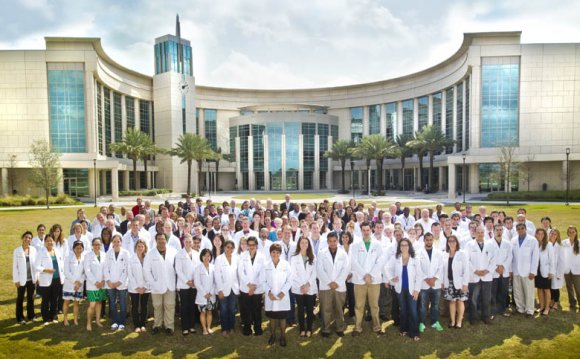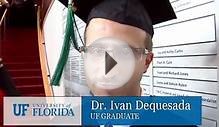
 The UCF College of Medicine M.D. program gives students educational and community opportunities that far exceed expectations. This video was produced at Match Day 2015, where graduating seniors learned where they will do their residency training.
The UCF College of Medicine M.D. program gives students educational and community opportunities that far exceed expectations. This video was produced at Match Day 2015, where graduating seniors learned where they will do their residency training.
Experience
From the dean and faculty to the Admissions and Student Affairs offices and staff, this new program has leaders who have come together to build a program like no other. We are all committed to building a medical school for this century that will prepare students to practice medicine today and tomorrow. Members of this diverse and motivated group will teach and share their talents and experiences with you so you are prepared for your career.
Support
The College of Medicine faculty and staff support student efforts with the student's educational attainment and success in mind. The community support for College of Medicine is remarkable and will benefit future students as well.
Faculty
Excellent medical educators are experienced in the integrated, interactive, and small group teaching methods that support the curriculum style. The faculty consists of recognized scientists, educators, and clinicians.
Facilities
Our new state-of-the-art, four-story College of Medicine building located in the new medical city complex in Lake Nona. The heart of this complex currently holds the College of Medicine Medical Education building, the Burnett Biomedical Sciences Research Bldg., and the Sanford-Burnham Medical Research Institute. It will also include other research buildings, clinical training hospitals, the College of Medicine medical school, and future health professions buildings, all surrounded by new commercial and housing areas, schools, and fitness trails. This is the only medical school in the nation that is the center piece of its own "medical city."
Curriculum
The core curriculum includes the integration of the basic sciences with clinical cases and problem solving. All aspects of the curriculum include the most up-to-date teaching and learning methods and technologies coupled with established techniques used for centuries that are proven and effective. The core curriculum can be described as integrated, case-based, organ system based, with modules that include interactive lectures, labs, small groups, online components, and simulations, with a multi- and interdisciplinary approach.
RELATED VIDEO












